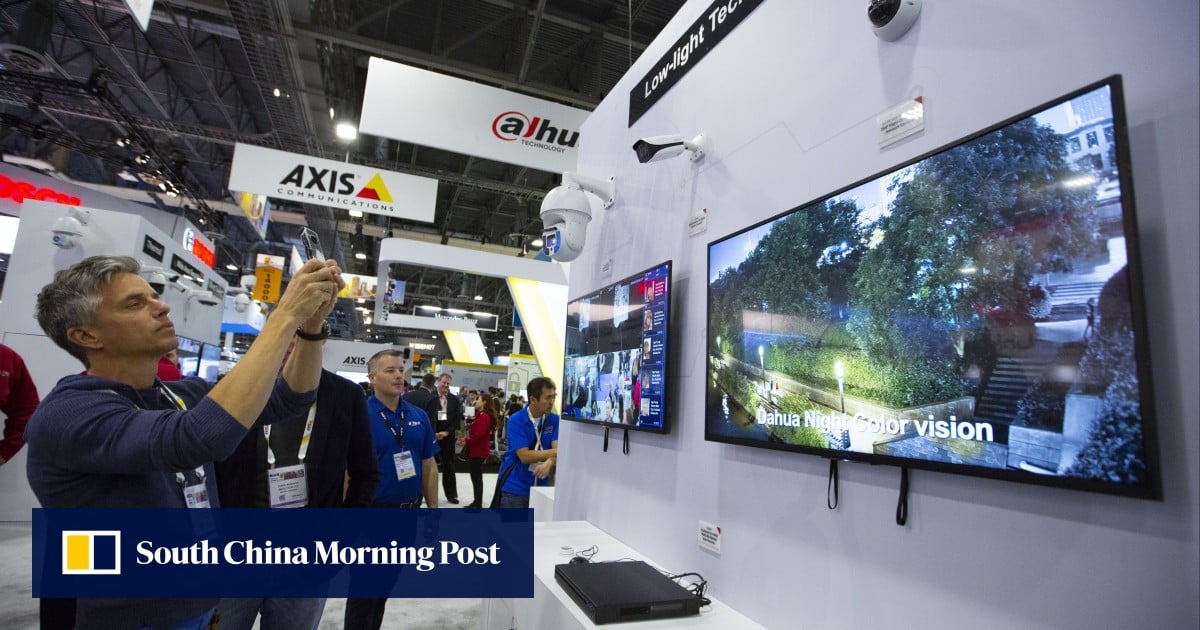
The new vehicle, Alat, and SoftBank will invest as much as US$150 million to establish a fully-automated manufacturing and engineering hub in Riyadh. The venture will build industrial robots based on intellectual property developed by SoftBank, with the first factory set to open in December.
Alat also tied up with Dahua Technology on a venture to make products for use in security and surveillance. The companies will invest US$200 million in the business, which will be majority owned by the Saudi company.
Dahua was among firms banned from selling electronics in the US by regulators who said they posed a security risk. The company has previously supplied products to Saudi Arabia, including face scanners for the government’s US$500 billion megaproject, Neom.
Saudi conglomerate Ajlan eyes ‘mega deals’ with Chinese tech, new energy firms
Saudi conglomerate Ajlan eyes ‘mega deals’ with Chinese tech, new energy firms
“Today’s announcement marks a historic milestone for how future manufacturing will take place,” SoftBank Chairman Masayoshi Son said. The Saudi Public Investment Fund has a long-standing relationship with SoftBank and committed US$45 billion to the Vision Fund.
The moves underscore Saudi Arabia’s commitment to transform itself from an oil-dependent economy to a powerhouse that makes money on everything from tech to metals, mining and tourism. The latest deals come a month after a government minister said the PIF is looking at making a “sizeable investment” in the semiconductor industry.
China Inc hops into Middle East growth as region veers away from oil
China Inc hops into Middle East growth as region veers away from oil
Led by Crown Prince Mohammed bin Salman and backed by the PIF, Alat was created to sign deals with international players and invest in large industrial firms that the kingdom wants to see set up operations locally. The firm plans to invest US$100 billion by 2030.
The firm is weighing opportunities to invest in semiconductor manufacturing and is in talks with several potential partners to make its first investment in the industry this year, Chief Executive Officer Amit Midha said in an interview.
“We’re talking to several global and world class companies about how we can meaningfully help as well as benefit,” Midha said, declining to comment on specifics. He added Alat will be “fully compliant” with US sanctions, which are designed to curb China’s access to Western semiconductor technology and slow its development of advanced chips.
Hong Kong eyes steps to attract IPOs from mainland China, Middle East: Paul Chan
Hong Kong eyes steps to attract IPOs from mainland China, Middle East: Paul Chan
Initially, Alat’s semiconductor ventures will not focus on the most advanced types of chips, he said.
Alat, Arabic for machines, was launched at a glitzy event in the Saudi capital, Riyadh, in front of a delegation of government ministers. An introductory video said Alat was “building a better tomorrow, not just for Saudi Arabia but for the world.” The company says it will be run on renewable energy.
Another key ambition for Saudi Arabia is to develop an auto manufacturing hub on the West Coast. US EV-maker Lucid Group is already assembling cars there and is set to be joined by Hyundai Motor and Ceer, a brand created by the PIF. Plans for the hub involve developing downstream industries, including making chips and batteries.
The wealth fund, key to the kingdom’s Vision 2030 plan, has rapidly amassed US$700 billion in assets and aims to control US$1 trillion in 2025.
But not all its bets have paid off. It took an US$11 billion loss on investments in 2022, according to its last annual report, as global markets tumbled. A US$45 billion commitment to SoftBank’s technology-focused Vision Fund, probably its biggest international deal, has failed to deliver big gains.
In contrast, Midha said that Alat will not be a big cash drain for the PIF.
“This is not a venture capital fund where we lose money for many years before we see significant profitability.”
